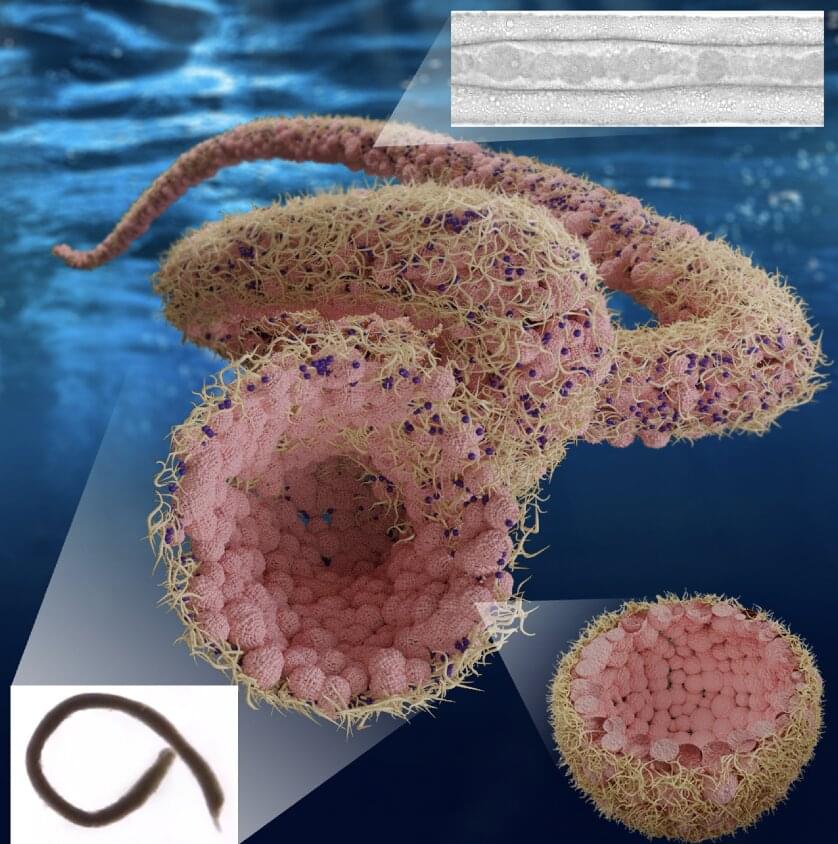In recent years, roboticists have developed a wide variety of robotic systems with different body structures and capabilities. Most of these robots are either made of hard materials, such as metals, or soft materials, such as silicon and rubbery materials.
Researchers at Hong Kong University (HKU) and Lawrence Berkeley National Laboratory have recently created Aquabots, a new class of soft robots that are predominantly made of liquids. As most biological systems are predominantly made up of water or other aqueous solutions, the new robots, introduced in a paper published in ACS Nano, could have highly valuable biomedical and environmental applications.
“We have been engaged in the development of adaptive interfacial assemblies of materials at the oil-water and water-water interface using nanoparticles and polyelectrolytes,” Ho Cheung (Anderson) Shum, Thomas P. Russell, and Shipei Zhu told TechXplore via email. “Our idea was to assemble the materials that the interface and the assemblies lock in the shapes of the liquids. The shapes are dictated using external forces to generate arbitrary shapes or to use all-liquid 3D printing to be able to spatially organize the assemblies.”










Comments are closed.